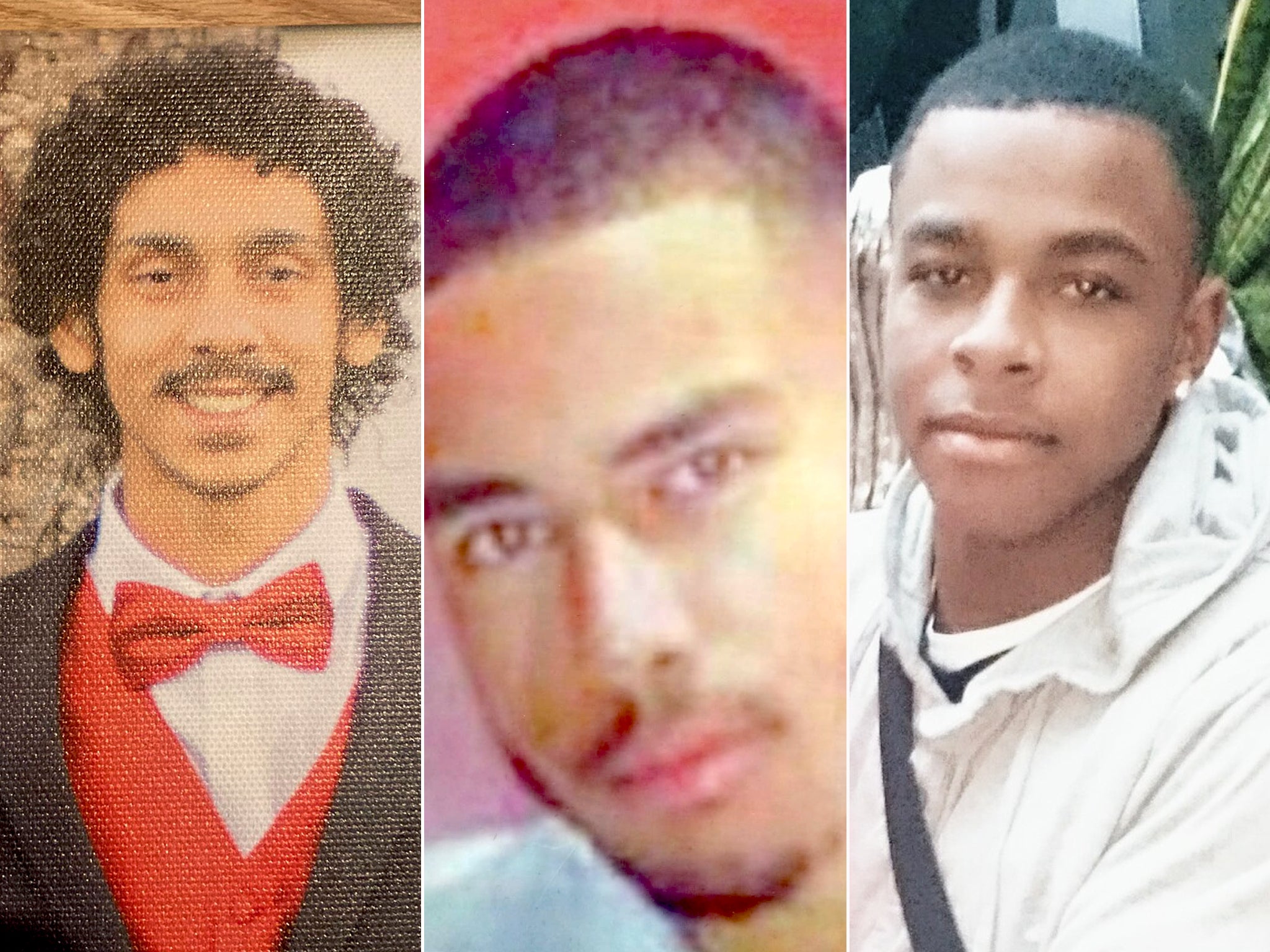Three Black men convicted of murder launch legal appeal claiming ‘institutional racism’
Families of Durrell Goodall, Reano Walters and Nathaniel Williams launch bid to clear their children’s names

Your support helps us to tell the story
From reproductive rights to climate change to Big Tech, The Independent is on the ground when the story is developing. Whether it's investigating the financials of Elon Musk's pro-Trump PAC or producing our latest documentary, 'The A Word', which shines a light on the American women fighting for reproductive rights, we know how important it is to parse out the facts from the messaging.
At such a critical moment in US history, we need reporters on the ground. Your donation allows us to keep sending journalists to speak to both sides of the story.
The Independent is trusted by Americans across the entire political spectrum. And unlike many other quality news outlets, we choose not to lock Americans out of our reporting and analysis with paywalls. We believe quality journalism should be available to everyone, paid for by those who can afford it.
Your support makes all the difference.Lawyers for three Black men “wrongly” convicted of murder have applied for their sentences to be reviewed, claiming they were victims of “institutional racism” within the courts.
The families of Durrell Goodall, Reano Walters and Nathaniel Williams submitted an application to the Criminal Cases Review Commission (CCRC) on Friday to clear their children’s names for the 2016 murder of Abdul Hafidah, 18, in Moss Side, Manchester.
The trio, who were prosecuted in 2017 under the controversial joint enterprise law, claim they were “wrongly” associated with a violent street gang named AO (Active Only) that allegedly pursued Mr Hafidah.
The application to the CCRC argues “there was no violent criminal gang by the name of AO”, and that the convictions are a “gross miscarriage of justice”.
Only one person, 19-year-old Devonte Cantrill, stabbed Mr Hafidah, however, seven were convicted of murder, three of manslaughter, and one pleaded guilty to manslaughter. The youngest defendant was aged just 14 at the time and had learning difficulties and all of the defendants were Black or mixed-race.
Darrell Ennis-Gayle, a partner at Hodge Jones & Allen, which is acting for the families, said: “The prosecution knew who murdered Abdul Hafida, however, it was allowed to go unchecked and unchallenged in bringing about a false narrative that labelled a group of Black and mixed-race boys as gang members when they were nothing of the sort. The fact that the majority of these boys had no previous convictions, had jobs and went to college was irrelevant.
“All that was relevant was where they lived, the music they listened to and the colour of their skin. Over the past two-and-a-half years we have revisited this case fully and with fresh evidence have shone a new light on what we truly believe is a gross miscarriage of justice.
“We have absolute faith that the Criminal Cases Review Commission will consider this application fully and properly. We thoroughly expect that the commission will see all that has gone wrong with this case in order that it can finally be put right.”
On Friday morning, the mothers of these three jailed men delivered a statement outside the CCRC in Birmingham, before hand-delivering the application for appeal on behalf of their sons.
“Back in 2017, from the start of the criminal trial that convicted our sons, our fear was always that our sons had been prejudged, because of the colour of their skin and because of where they are from – being Black and mixed-race young people from Moss Side in Manchester,” they said.
“In their efforts to convict all the boys of murder, the prosecution relied on the story that they are all in a gang, based on prejudice about boys and young people who live in our communities in south Manchester.
“We know our boys didn’t take anyone’s life. It is the courts that have taken their lives.”
The legal bid is supported by Lucy Powell, MP for Manchester Central.
Black people are 11 times more likely to serve time under joint enterprise convictions compared to their presence in the population as a whole, figures show.
Research including the Macpherson report in 1999 following the murder of Stephen Lawrence and the Lammy Review in 2017, looking into the treatment of Black and minority communities accused of crimes, highlighted that these communities face bias, including overt discrimination, in parts of the justice system, and joint enterprise is applied overwhelmingly in a disproportionate manner against Black defendants.
Subscribe to Independent Premium to bookmark this article
Want to bookmark your favourite articles and stories to read or reference later? Start your Independent Premium subscription today.




Join our commenting forum
Join thought-provoking conversations, follow other Independent readers and see their replies
Comments